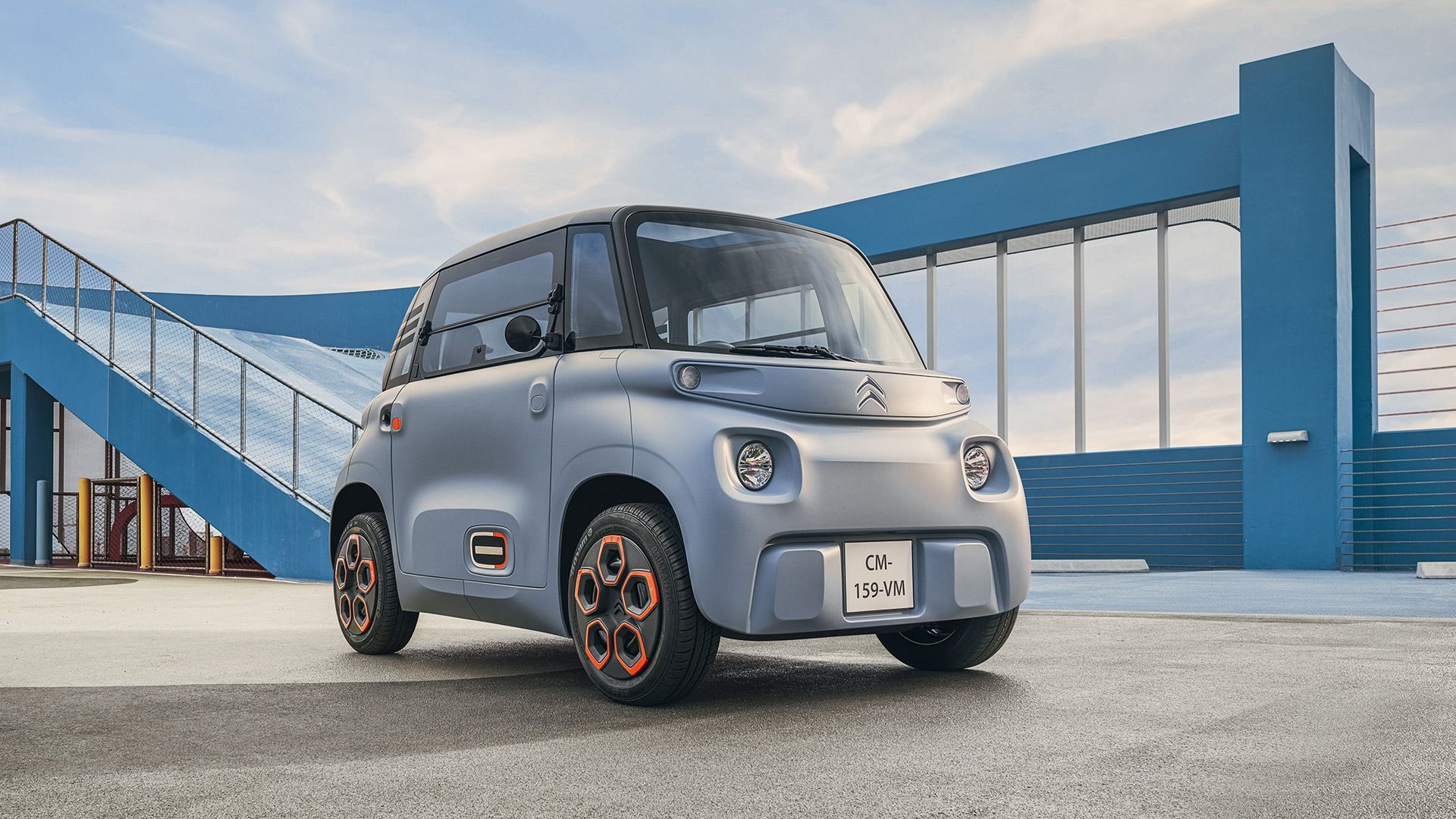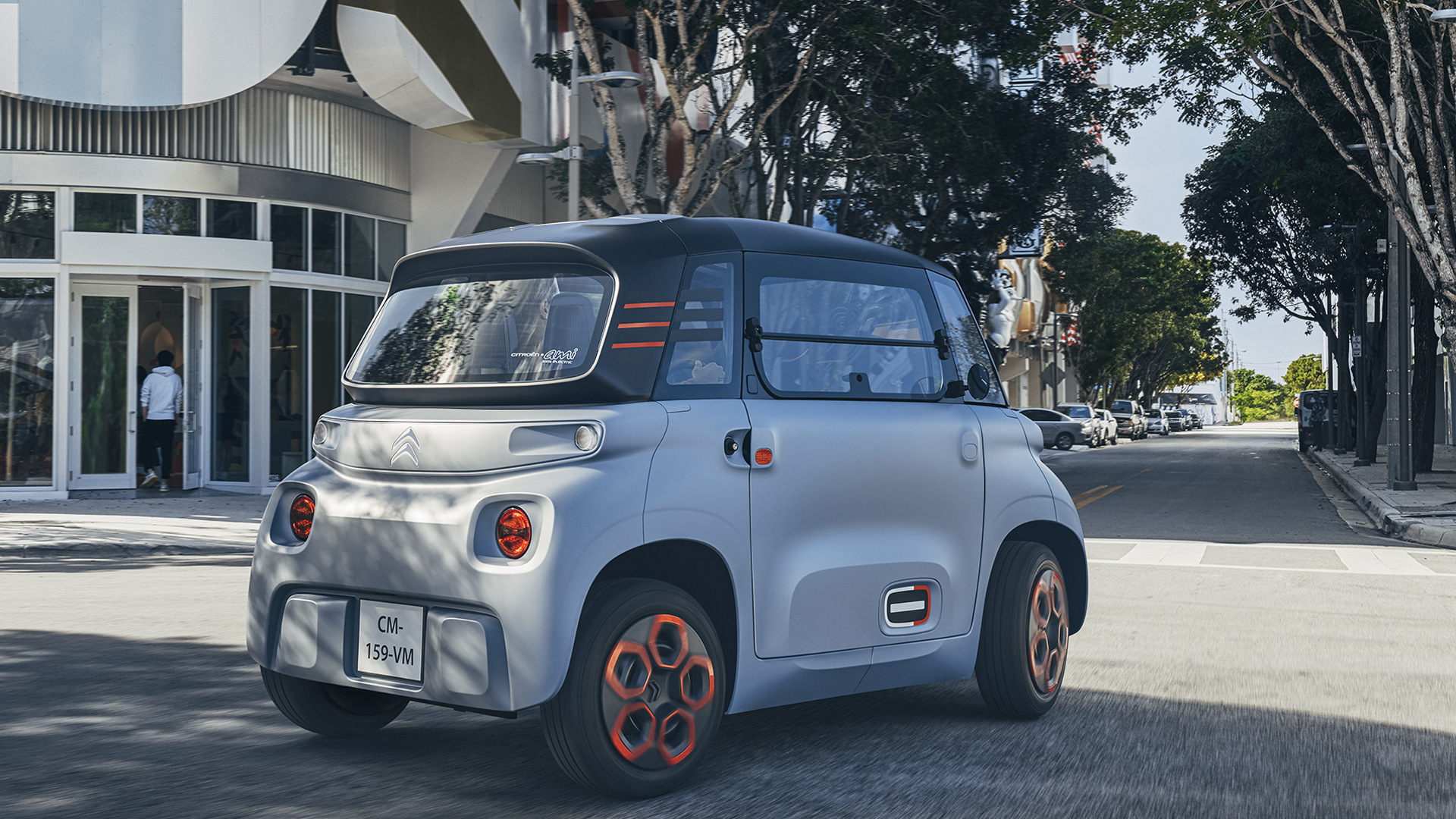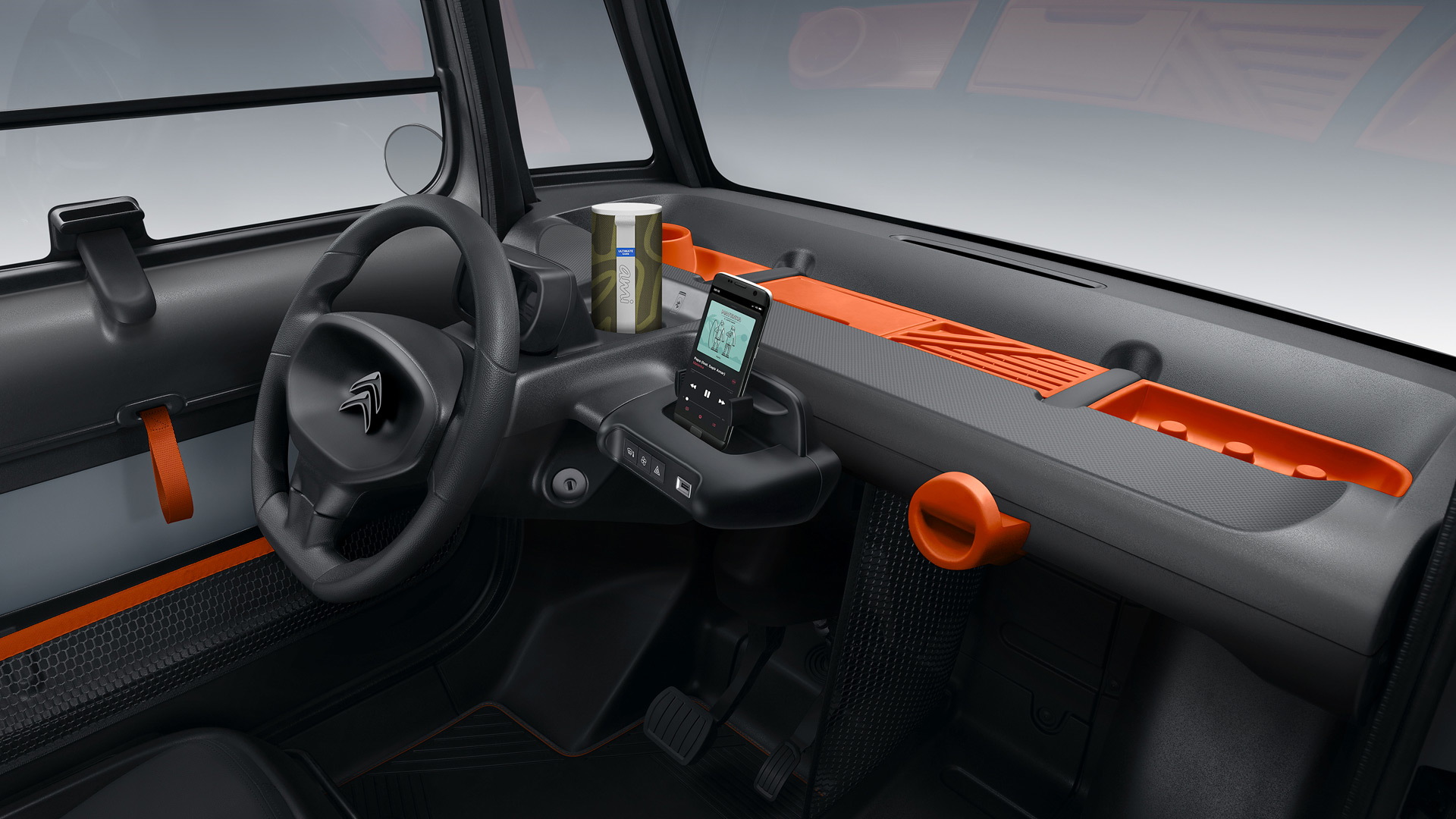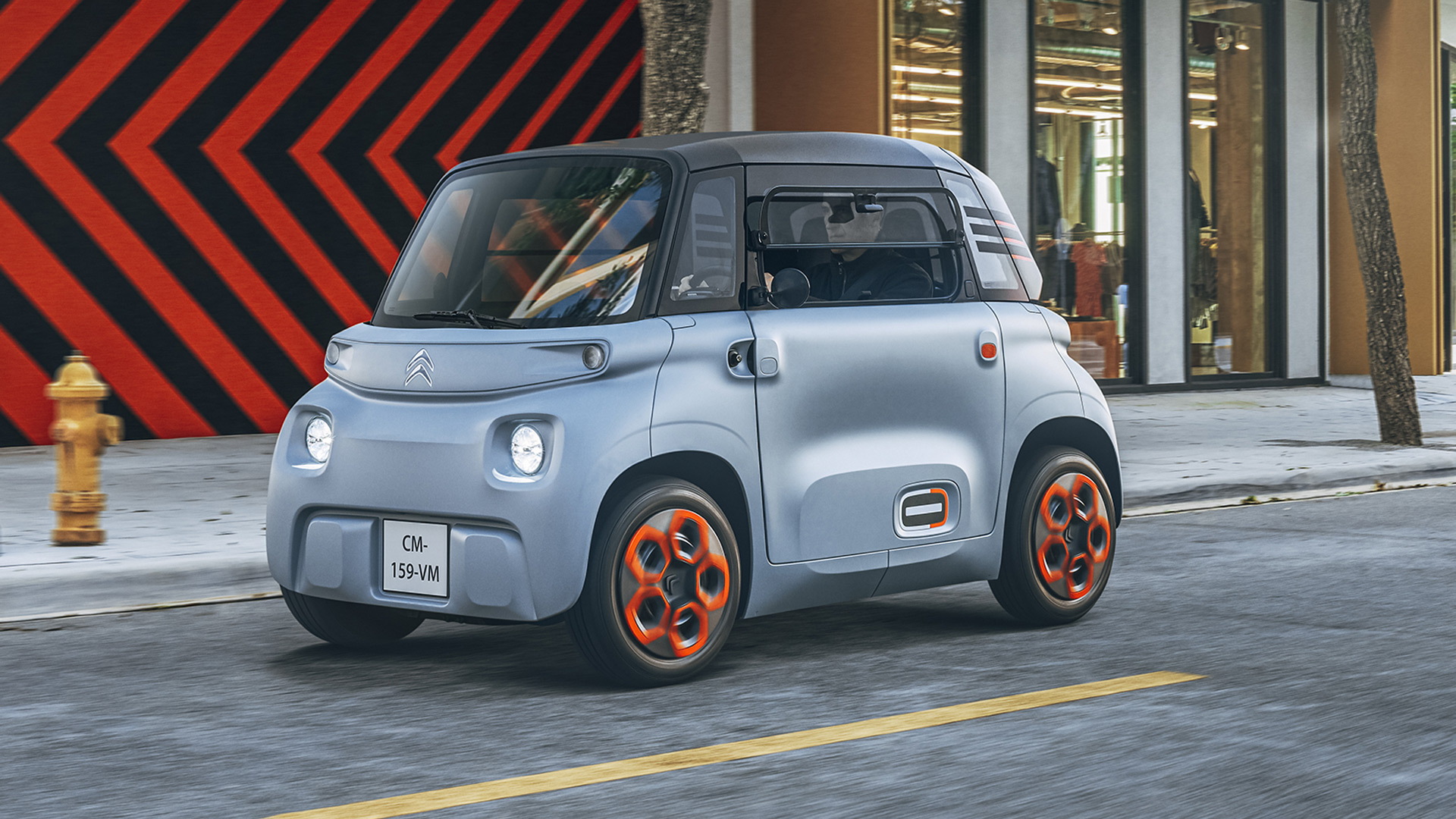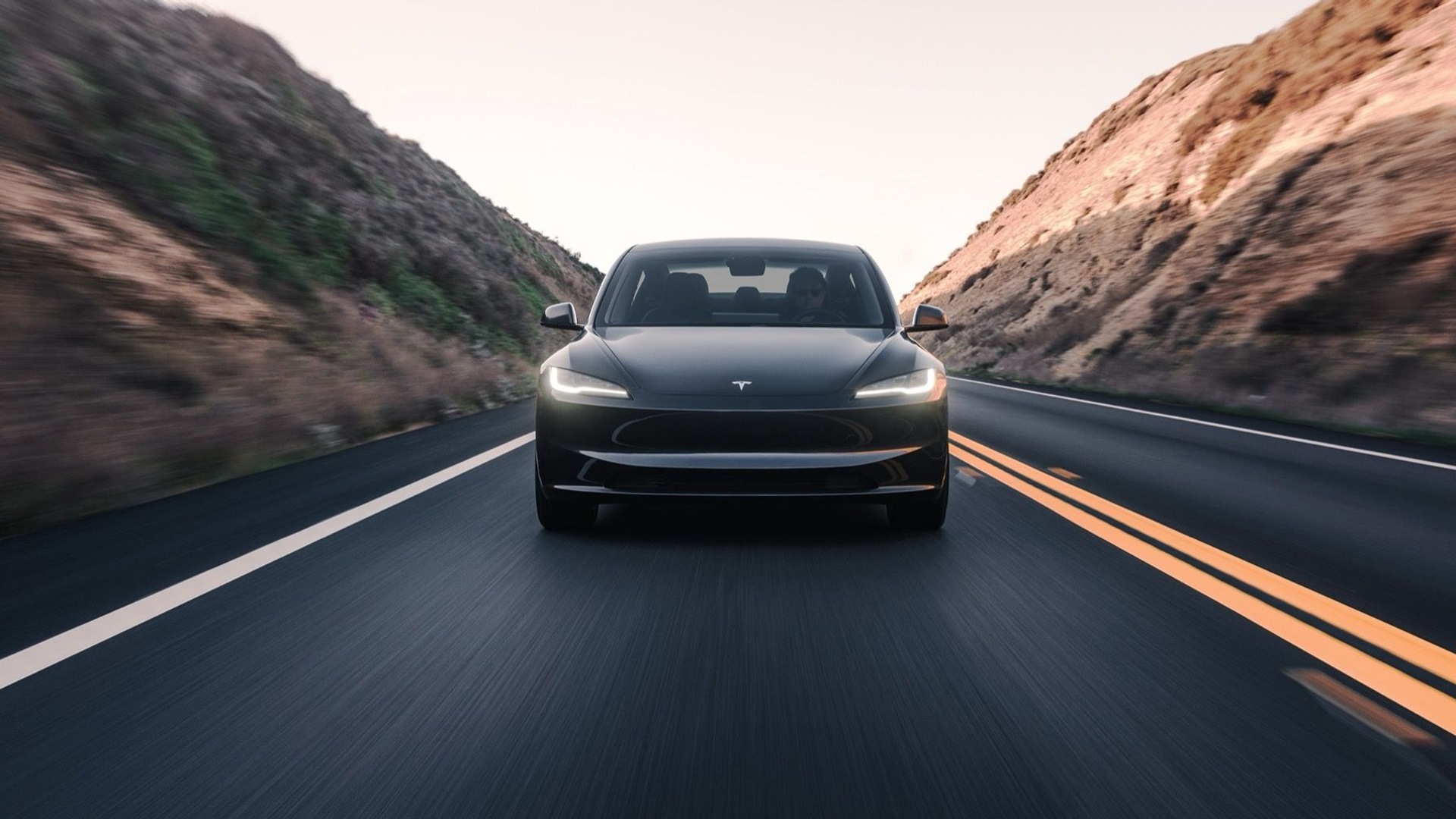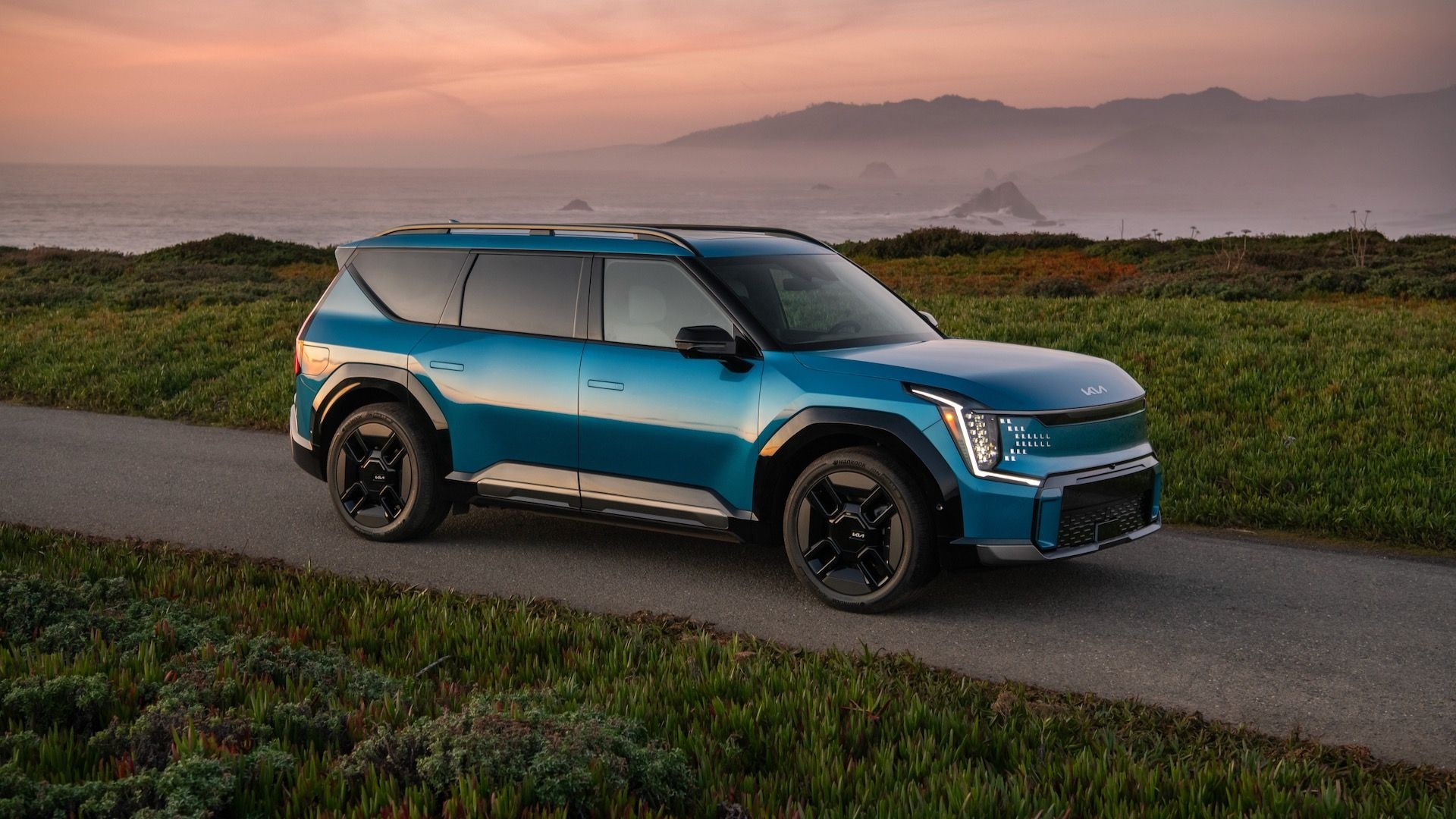Citroën is returning to the United States, albeit on a very limited basis. Last week the Free2Move mobility service operated by the French automaker's parent company announced in a LinkedIn post that it would add the Citroën Ami EV to its Washington, D.C. car-sharing operation.
Free2Move was started by the PSA Group, before the company merged with Fiat Chrysler Automobiles (FCA) to form Stellantis. None of the PSA brands currently have a U.S.-market presence, so Free2Move has used cars from other brands until now.
Reviving the name of a classic Citroën that celebrates its 60th anniversary this year, the two-seat Ami was unveiled last year for the European market. Its small size and low top speed (28 mph) mean the Ami isn't considered a car under European Union regulations. Instead, it's a "quadricycle," according to Citroën.
That will likely be the case in the U.S. as well, but using such a vehicle in a sharing service isn't without precedent. Scooter-sharing service Scoot Networks brought the Renault Twizy to San Francisco in 2015 as the Nissan Scoot Quad.
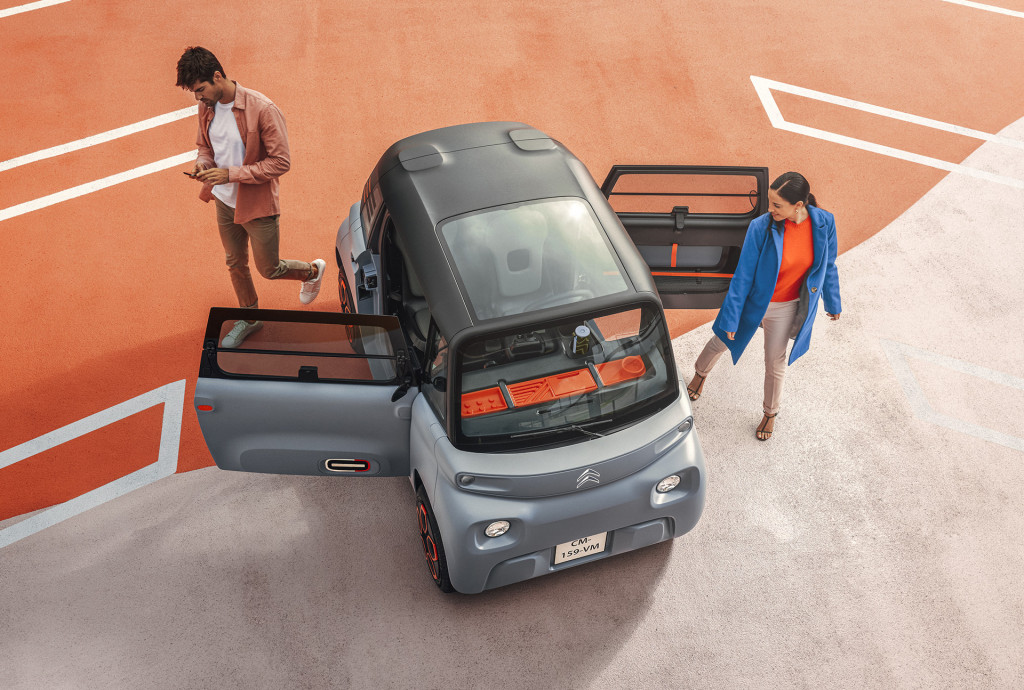
2020 Citroen Ami
In Europe, Free2Move already offers short-term Ami rentals, but Citroën announced last year that customers could also rent the tiny EV on a longer-term basis for the equivalent of $23 a month, or $2,900 for 48 months. The actual purchase prices is approximately $7,600. Renault has made the Zoe the basis of a European car-sharing service as well, although the Zoe is a full-fledged passenger car by any standard.
The Ami isn't the only Citroën EV with a retro name. The open-air Citroën e-Mehari debuted in 2016, borrowing the name of a 2CV-based utility vehicle that first appeared in 1968. Perhaps this would do better in certain U.S. markets, such as Miami or San Diego?
In March, Free2Move announced an expansion to a less-sunny locale—Portland, Oregon—but hasn't said whether the Ami will be available there.
In Portland, car-sharing service Car2Go faced controversy that they removed availability in portions of the city that were lower-income and more racially diverse. Car2Go then pulled out of a number of U.S. cities in 2019, citing a "highly volatile" market.
